-
Who We Are
WHO WE AREThe International Organization for Migration (IOM) is part of the United Nations System as the leading inter-governmental organization promoting since 1951 humane and orderly migration for the benefit of all, with 175 member states and a presence in over 100 countries. IOM has had a presence in Bulgaria since 2000.
About
About
IOM Global
IOM Global
-
Our Work
Our WorkAs the leading inter-governmental organization promoting since 1951 humane and orderly migration, IOM plays a key role to support the achievement of the 2030 Agenda through different areas of intervention that connect both humanitarian assistance and sustainable development. Across Bulgaria, IOM assists the development of national mechanisms to combat and counteract trafficking in human beings and supports victims of trafficking.
Cross-cutting (Global)
Cross-cutting (Global)
- Data and Resources
- Take Action
- 2030 Agenda
IOM Bulgaria organised a training on working with unaccompanied asylum-seeking minors
IOM Bulgaria organized a training titled 'Working with Unaccompanied Minors Seeking or Granted International Protection in Bulgaria' as part of the implementation of the project 'Support for Unaccompanied Minors Seeking International Protection.
The training took place over four days, with two identical blocks (two days each) attended by different participants. The attendees included social workers from IOM's Safe Zones, representatives from UNICEF, UNHCR, Bulgaria Red Cross, Foundation for Access to Rights (FAR), the State Agency for Refugees (SAR) and the Animus Association Foundation. Representatives from the transitional housing in Gorna Banya and the Crisis Centre for Unaccompanied Children - Foreign Citizens and Refugee Children at Risk in Ruse also took part in the training and gave presentations.
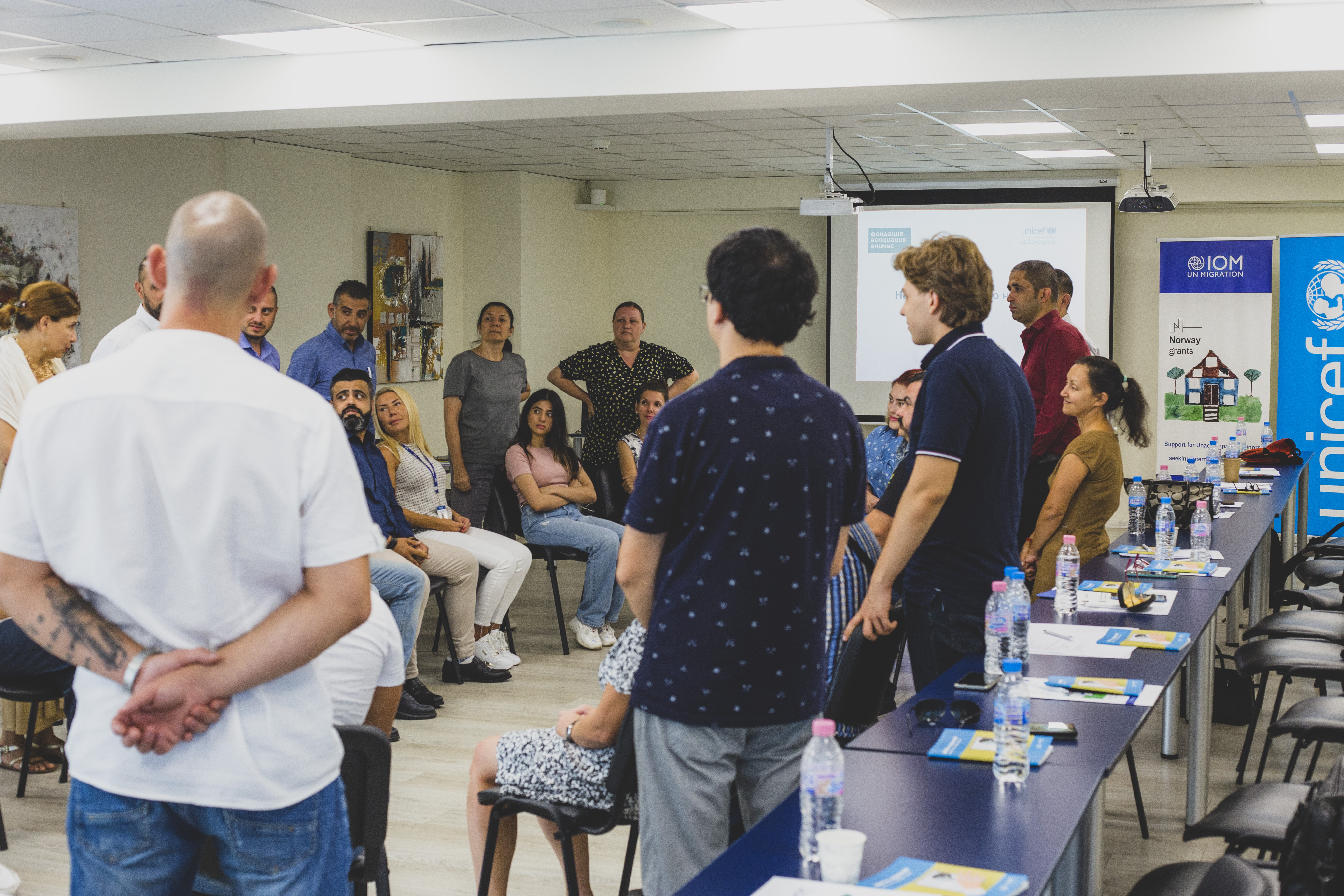
The events began with presentations from UNICEF, UNHCR, and IOM experts on the basic principles of working with children. The attendees learned about the general principles of identifying and referring unaccompanied children, as well as the four core principles of the UN Convention on the Rights of the Child.

Next, experts from UNICEF, SAR, and the social services presented on 'Social Services and Durable Solutions.' They began with a brief overview of the legal framework for international protection and durable solutions, as well as the reunification process with family members. The experts then shared their experiences with placing individuals in social services in Bulgaria. The module concluded with a discussion of the challenges and best practices
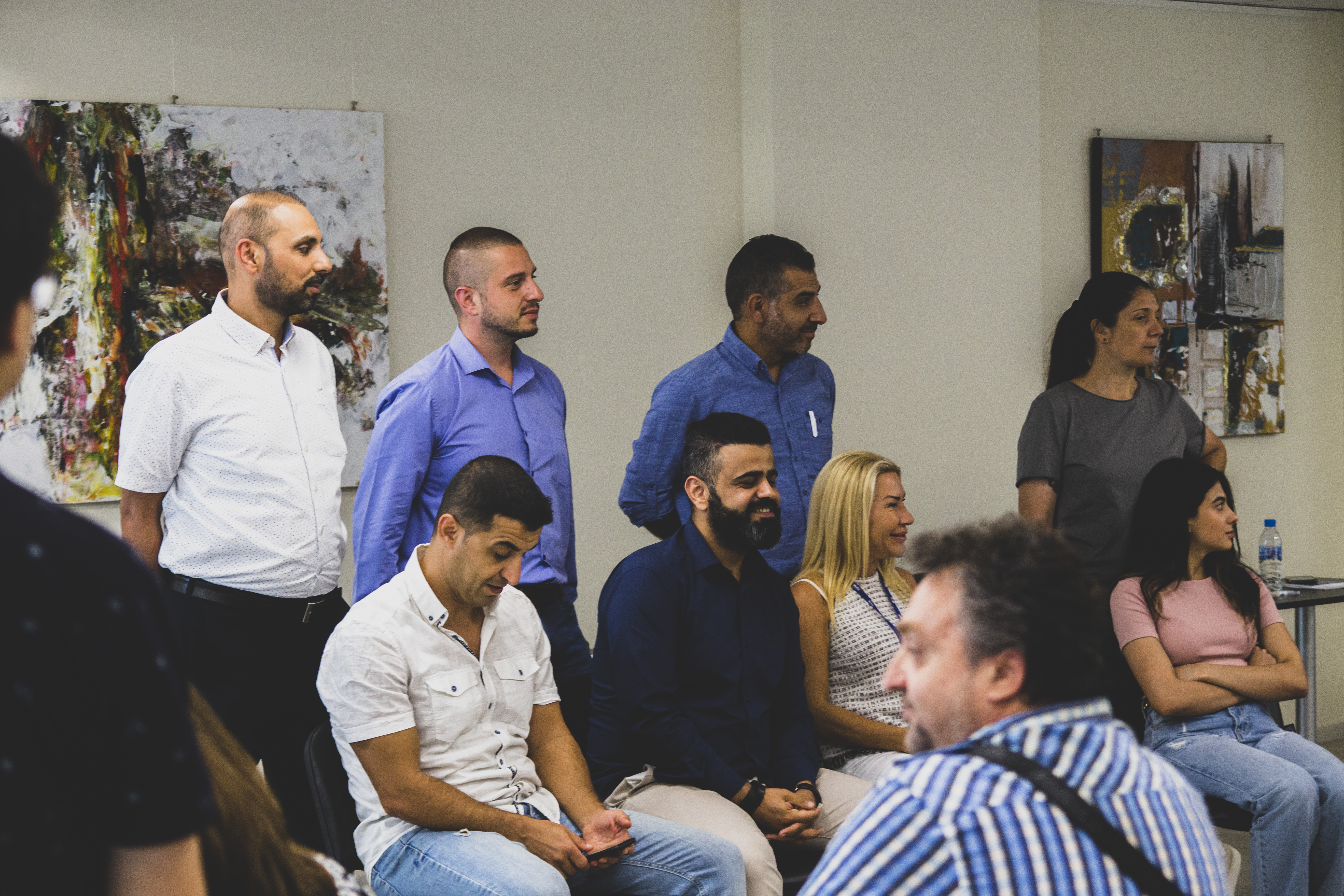
The final module on the first day was presented by an expert from the Animus Foundation and focused on gender-based violence. The attendees learned how to identify GBV when working with unaccompanied minors, as well as the different forms of GBV and the appropriate response to GBV cases. The session included active participation and discussion, based on the professional experiences and specific cases of the attendees.
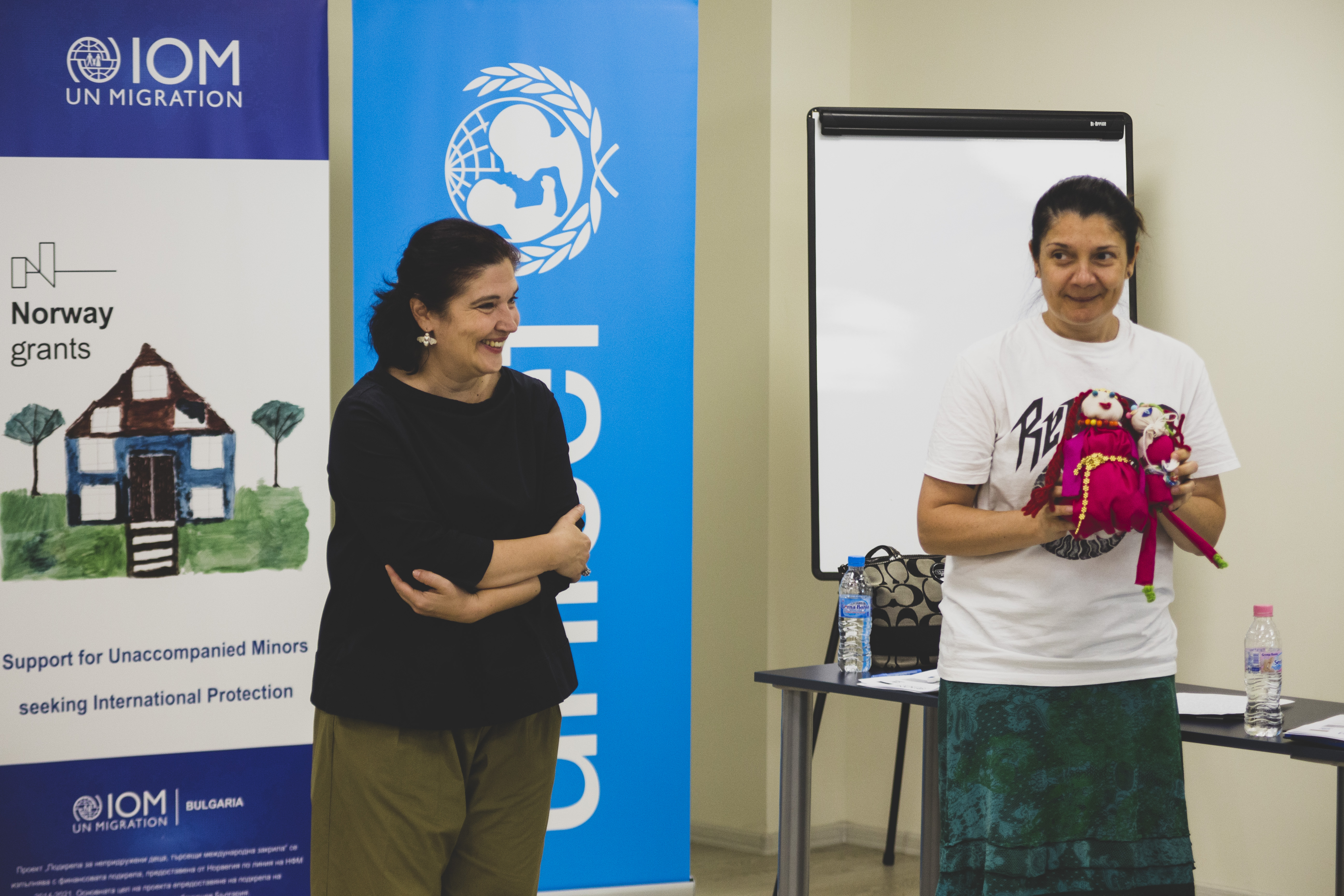
On the second day of the training, a psychologist from IOM led a workshop on psychosocial work with unaccompanied children. During the workshop, the participants learned about the meaning and process of psychosocial support, as well as the psychological and social effects of art and socialization. The workshop provided a space for discussion and exchange of experiences and ideas.
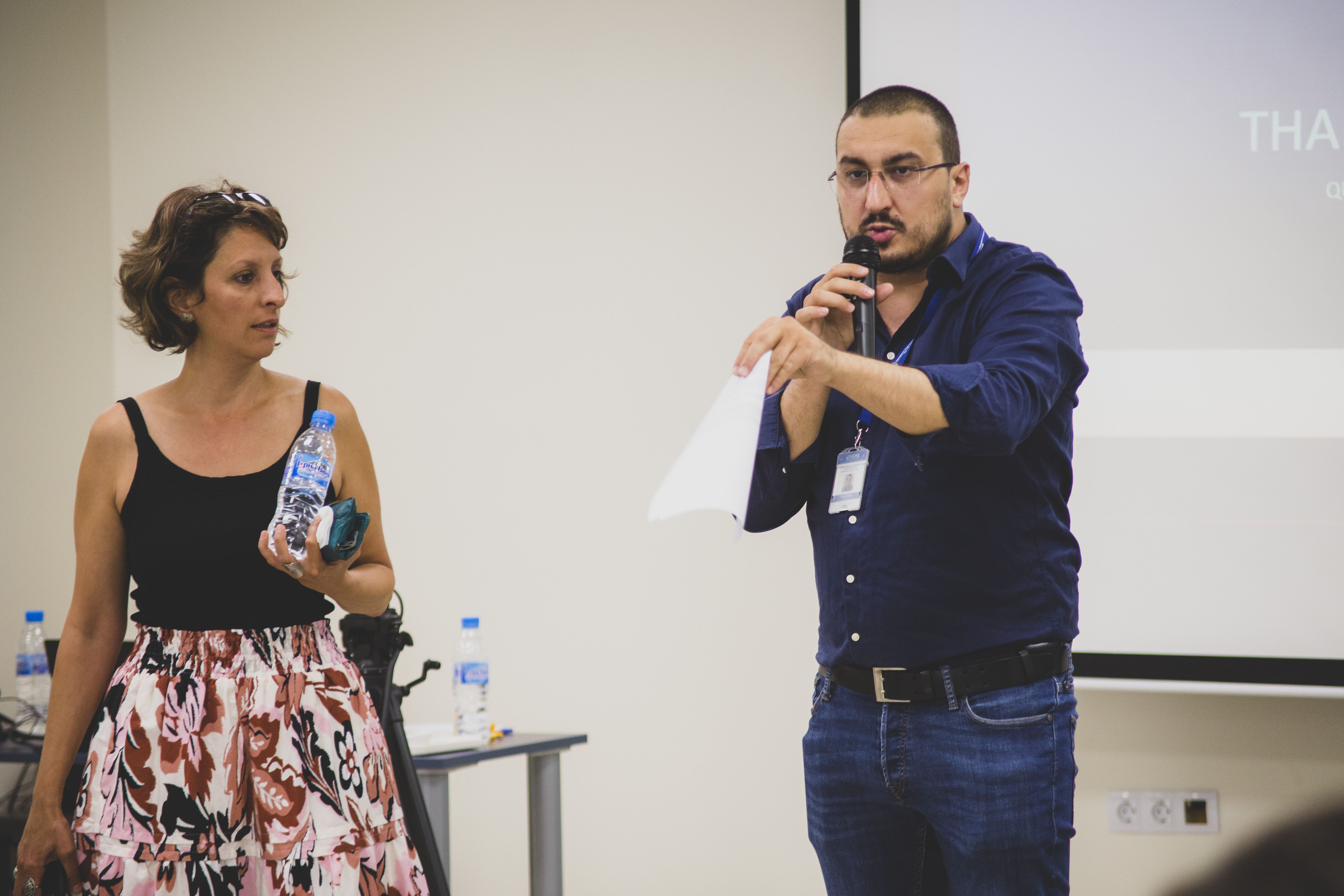
To conclude the training, another psychologist from IOM Bulgaria led a presentation on 'Professional boundaries and ethics when working with unaccompanied children.' The presentation covered the definition of professional boundaries, how to apply them, and the importance of professional boundaries and ethical standards in this line of work. The presentation was followed by a discussion that allowed the participants to reflect on their experiences and learn from each other.
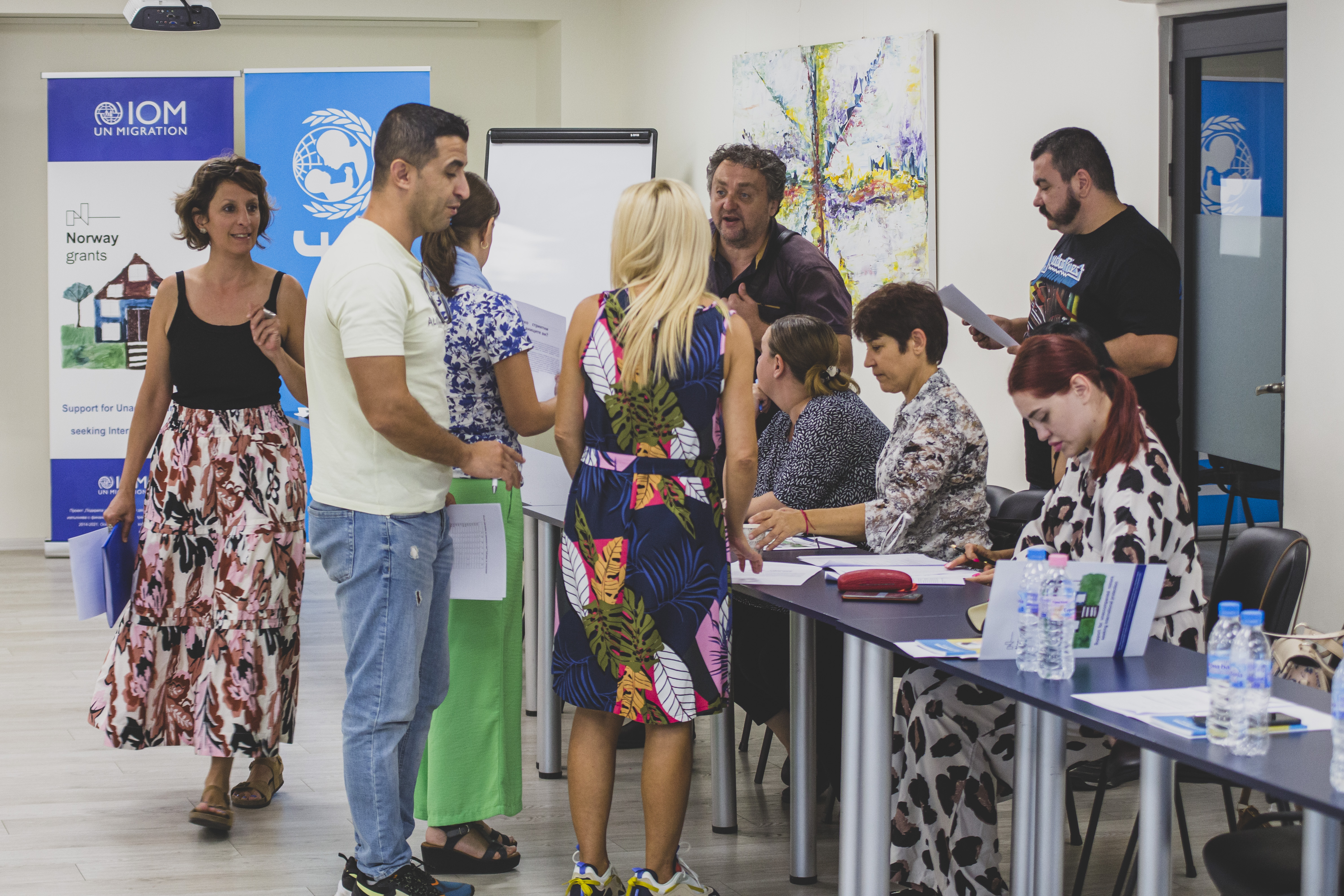
The training on working with unaccompanied children not only provided practical tools, but also instilled a sense of hope and optimism in the participants, who left feeling inspired to support unaccompanied children with compassion and empathy
